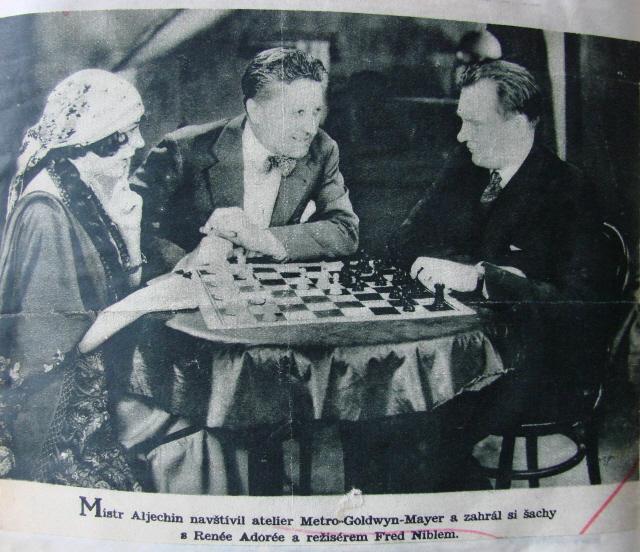The Alekhine Memorial Super-Tournament began on April 20 at The Louvre Museum in Paris. The participants: Anand, Kramnik, Aronian, Svidler, Gelfand, Vachier-Lagrave, Fressinet, Adams, Vitiugov and Ding Liren.
The first five rounds are in Paris and the second set of five begins on the 28th of April in St. Michael’s Castle of the State Russian Museum in St. Petersburg, where the winner’s name will be later proclaimed.
The Alekhine Memorial at the Louvre is one of the events of Russian Week that started on the 18th of April. The famous French and Russian museums were not a random choice for this ambitious project. Alekhine lived in Paris when he was in the heyday of his glory and his career began in St. Petersburg in 1914.
In the first round today, Aronian lost to Ding Liren, Anand lost to Michael Adams and Kramnik reportedly beat Vitiugod in a brilliant game.
+++++
Is it just my imagination or are there memorial tournaments all over the place this year? I think the Capablanca and Tal memorials are coming up shortly and there could be more:
Saturday, 20.04.2013
The press conference dedicated to the opening of the Alekhine Memorial was held in Paris. Ilya Levitov, the Chairman of the Management Board of the Russian Chess Federation, was among the speakers, "We have an idea of holding the tournaments in honor of the Soviet and Russian world champions within a year. We just need a stable funding," he said.
In regard to the Memorial Levitov said that the Russian Chess Federation is more playing a role of a "service company" than of the organizer, "This is an ideal situation for us when there are people who are ready to finance the things for which the Russian Chess Federation exists."
http://www.alekhine-memorial.com/
The first five rounds are in Paris and the second set of five begins on the 28th of April in St. Michael’s Castle of the State Russian Museum in St. Petersburg, where the winner’s name will be later proclaimed.
The Alekhine Memorial at the Louvre is one of the events of Russian Week that started on the 18th of April. The famous French and Russian museums were not a random choice for this ambitious project. Alekhine lived in Paris when he was in the heyday of his glory and his career began in St. Petersburg in 1914.
In the first round today, Aronian lost to Ding Liren, Anand lost to Michael Adams and Kramnik reportedly beat Vitiugod in a brilliant game.
+++++
Is it just my imagination or are there memorial tournaments all over the place this year? I think the Capablanca and Tal memorials are coming up shortly and there could be more:
Saturday, 20.04.2013
The press conference dedicated to the opening of the Alekhine Memorial was held in Paris. Ilya Levitov, the Chairman of the Management Board of the Russian Chess Federation, was among the speakers, "We have an idea of holding the tournaments in honor of the Soviet and Russian world champions within a year. We just need a stable funding," he said.
In regard to the Memorial Levitov said that the Russian Chess Federation is more playing a role of a "service company" than of the organizer, "This is an ideal situation for us when there are people who are ready to finance the things for which the Russian Chess Federation exists."
http://www.alekhine-memorial.com/



Comment